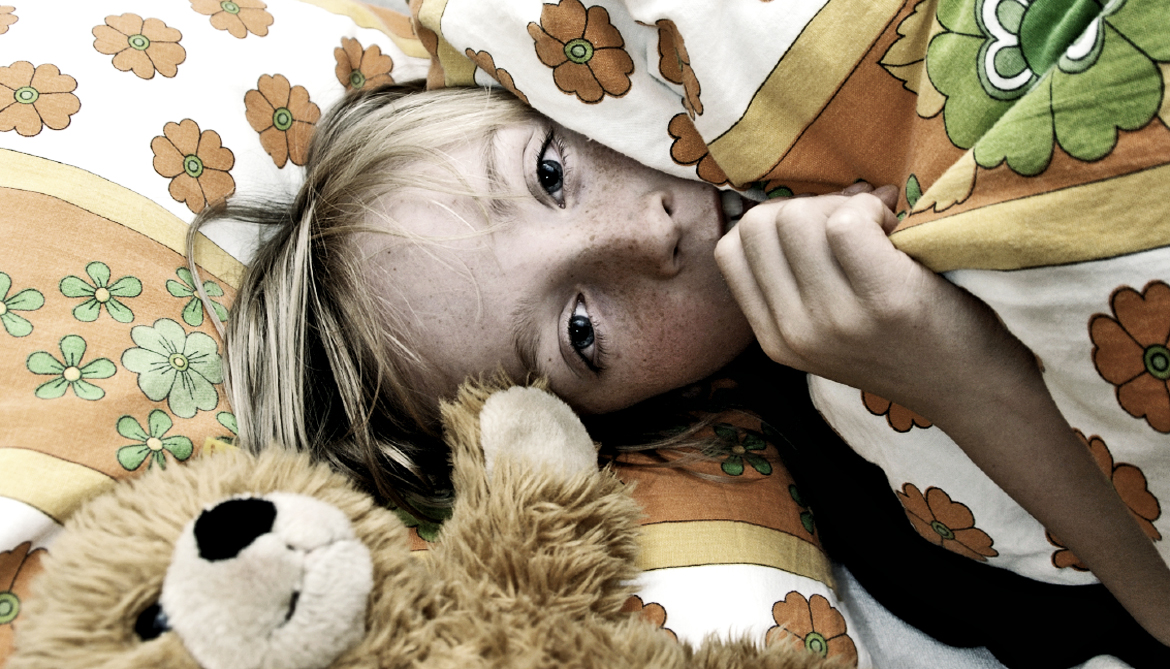About half of all children between the ages of 3 and 6 experience nightmares

About Half of All Children Between the Ages of 3 and 6 Experience Nightmares

Nightmares are an unsettling experience that can leave both children and parents feeling frightened and uneasy. It is estimated that about half of all children between the ages of 3 and 6 experience nightmares1^. These episodes of intense and distressing dreams occur during the rapid eye movement (REM) stage of sleep when the brain is highly active.
Nightmares can vary in intensity and content, but they often involve frightening scenarios that evoke feelings of fear, anxiety, and terror. Common themes include being chased, falling, being lost, or encountering monsters or other threatening figures. These vivid and realistic dreams can sometimes feel so intense that they wake the child up, often crying or in a state of distress.
While nightmares are a normal part of childhood, they can still be disruptive to both the child and their family. Sleep disruptions caused by nightmares may lead to daytime sleepiness and affect a child’s overall well-being and cognitive functioning.

Nightmares can be triggered by various factors, including emotional stress, anxiety, fears, or trauma experienced during the day. Additionally, irregular sleep schedules, fatigue, certain medications, and even a child’s vivid imagination can contribute to the likelihood of nightmares occurring.
As a parent, it can be distressing to witness your child experiencing nightmares. However, there are steps you can take to help alleviate their distress and promote a better night’s sleep.
Establish a Consistent Bedtime Routine: Creating a soothing and predictable routine before bedtime can help your child feel secure and relaxed, reducing the likelihood of nightmares.
Create a Calm Sleep Environment: Make sure your child’s bedroom is quiet, dark, and at a comfortable temperature. Removing scary toys or objects from their surroundings can also help create a more peaceful sleep environment.
Encourage Open Communication: Talk to your child about their dreams and any fears or anxieties they may have. Encouraging open communication can help them process their emotions and feel more secure.
Offer Reassurance: When your child wakes up from a nightmare, provide comfort and assurance. Let them know they are safe and loved, and remind them that dreams are not real.
Limit Exposure to Scary Content: Be mindful of the books, TV shows, and movies your child is exposed to, especially before bedtime. Avoid content that may be too stimulating or frightening for their age.
Seek Professional Help if Needed: If nightmares persist or significantly impact your child’s daily life, consider reaching out to a healthcare professional specializing in child sleep disorders. They can provide further guidance and support.
Remember, nightmares are a common and normal part of childhood development. By offering love, support, and reassurance, you can help your child navigate through these nighttime fears and promote a peaceful and restful night’s sleep.
Click here to learn more about sleep facts and statistics.
- Sleep Foundation: Sleep Facts and Statistics. Available at https://www.sleepfoundation.org/how-sleep-works/sleep-facts-statistics ↩
Tags
Share
Related Posts
Quick Links
Legal Stuff

